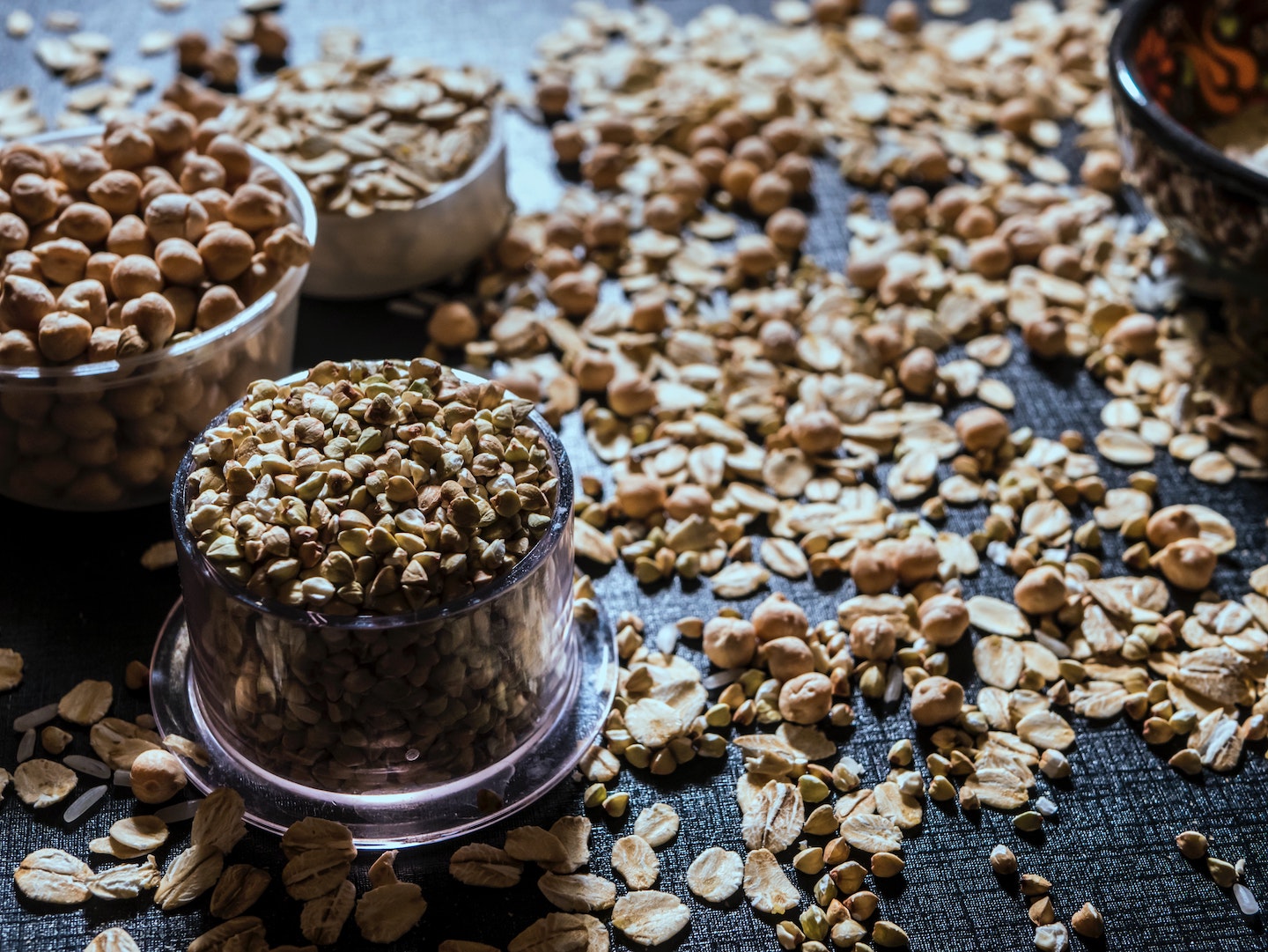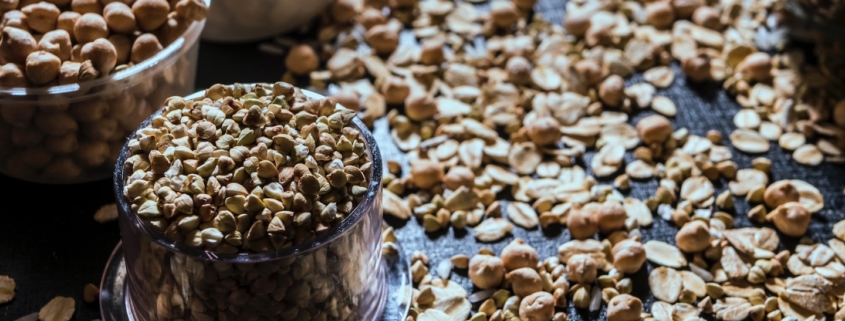Improve Your Cholesterol with Whole Grains (Plus Cholesterol Myths and Facts)
 Do you know what your cholesterol levels are? According to the Centers for Disease Control and Prevention, only 2/3 of Americans report having their cholesterol levels checked in the last five years. Even if you recently had your levels checked, you may not know what the numbers mean. Understanding cholesterol levels can be confusing as there are many different numbers and values to know.
Do you know what your cholesterol levels are? According to the Centers for Disease Control and Prevention, only 2/3 of Americans report having their cholesterol levels checked in the last five years. Even if you recently had your levels checked, you may not know what the numbers mean. Understanding cholesterol levels can be confusing as there are many different numbers and values to know.
September is dedicated to learning all about these values for National Cholesterol Education Month! Now more than ever is the perfect time to take control of your health and learn about the many ways to improve, prevent, and manage your cholesterol. Check out the myths and facts about cholesterol below, and the various ways to improve your cholesterol health.
Cholesterol Myths & Facts
There are two sources of cholesterol in the body, blood, and diet. Blood cholesterol is a waxy/ fat-like substance that is naturally found in the blood and produced by the liver. It is necessary for helping your body make hormones and digest food. Dietary cholesterol comes from animal foods such as meat, seafood, eggs, and dairy products.
Here is a breakdown of some of the myths and facts…
MYTH:
Cholesterol is bad for you.
FACT:
Certain types of cholesterol are essential to your health.
- LDL (low-density lipoprotein) This type of cholesterol is often called the “bad” cholesterol. LDL levels should be kept below 100 mg/dL. Having high levels of LDL are associated with heart disease and stroke.
- HDL (high-density lipoprotein) Also called the “good “cholesterol, your HDL cholesterol level is one you normally want to keep >50mg/dL. High levels of HDL reduce your risk of heart disease and stroke.
MYTH:
I don’t need to worry about my cholesterol levels.
FACT:
Everyone must check their cholesterol levels no matter their age. Certain lifestyle choices can increase your risk for high cholesterol.
- Make healthy eating choices.Be sure to incorporate whole foods like fruits, vegetables, and whole grains. Limit saturated fats and incorporate plant-based foods each week.
- Get in some physical activity. Staying active is a way to help manage your cholesterol levels and maintain a healthy lifestyle.
- Limit alcohol & quit smoking. The use of alcohol and smoking can both raise your cholesterol levels. If you consume alcohol, the recommended limit is 1 drink per day for women and 2 drinks per day for men. Smoking is a major risk factor for not only high cholesterol but, the development of many other chronic diseases.
MYTH:
I can’t change my cholesterol levels.
FACT:
The great news is there are many ways to improve your cholesterol levels!
- Know your numbers. Head to the doctor and be sure to check your cholesterol levels to make sure they are in a normal range. The sooner you know your numbers, the faster you can work towards improving them to improve your health.
- Read the label. Always read the nutrition label. Limit foods that are processed and high in saturated fats and added sugars which can negatively impact your cholesterol levels. Aim for whole grain foods and those high in fiber which can positively impact your levels.
- Talk with your healthcare providers.Consult with a Registered Dietitian on ways to improve your cholesterol levels and stay healthy.
A Whole Lot of Whole Grains
Did you know incorporating whole grains can improve your health and help you manage your cholesterol? In addition to National Cholesterol Education Month, it’s National Whole Grain Month! Whole grains are an excellent part of a nutritious diet, they provide vital nutrients such as vitamins, minerals, and fiber to help not only improve your cholesterol levels but improve your overall health and well-being.
Whole grains, unlike refined grains, come intact with all parts of the grain. The three parts of the grain including the bran, the germ, and the endosperm, are packed with nutrients that are normally removed during the processing of refining. With more of the grain intact, whole grains and packed with more nutrients and make for an overall more nutritious option. Check out some whole-grain options below.
- Hulled barley
- Brown rice
- Buckwheat
- Bulgur
- Quinoa
- Oatmeal
- Millet
There are many options to choose from when it comes to whole grains. Be sure to always read the nutrition label and look for the word “whole” to be sure it is a whole grain. Whole grains are delicious and nutritious and should be incorporated into each meal.
Now that you know more about cholesterol and ways to manage your cholesterol through nutrient-rich foods like whole grains, you’re ready to take control of your cholesterol health!
Your Turn to Take Action: How will you take control of your cholesterol health? Let me know in the comments below!


Leave a Reply
Want to join the discussion?Feel free to contribute!